Research Newsletter
The URPP Newsletter is published electronically and informs about current projects, news, and events at the URPP Dynamics of Healthy Aging (DynAge).
If you are interested in receiving this newsletter, please subscribe here.

Editorial
URPP Dynamics of Healthy Aging’s Mission: Overcoming Disparities in Data About Aging
Reports
Community-Based Cognitive-Affective Capacity Building 65+ (CoCoCap65+)
The Pandemic Project: The Study of People During COVID-19
OldSchool: The Versus Virus Hackathon
WHO Collaborating Center Plus Network for Healthy Aging
Spotlight
Applied Social and Health Psychology
Brain-Based Predictions in Old Age: An Interview with Dr. Franziskus Liem
Language Use and Socio-Affective Processes Across the Lifespan: An Interview with Tabea Meier, M.Sc.
Personality Processes and Healthy Aging: An Interview with Stefanie Lindner, M.Sc.
News
Successfully Defended Dissertations
New URPP DynAge Staff
Prizes and Awards
Events
Upcoming Events
Recent Events
Research Exchange
Editorial
URPP Dynamics of Healthy Aging’s Mission: Overcoming Disparities in Data About Aging
Healthy aging is a complex, diverse, and heterogeneous phenomenon. In fact, trajectories of healthy aging are inter- and intra-individually, but also inter- and intra-contextually diverse. To understand and explain the elements and processes that guide the development of this heterogeneity, healthy aging research requires theoretical models and empirical data that can meaningfully, reliably, and precisely describe, explain, and predict causes and effects within the complexity of the healthy aging process and the factors influencing it within and across contexts and situations. Such models provide a theoretically informed basis to understand and explain healthy aging both in experimental situations and in the real world. These, in turn, can be used to guide the development of individualized, contextualized, and situation-aware interventions and support services.
Despite the essential importance of differential data reflecting the complexities of healthy aging, the URPP Dynamics of Healthy Aging is leading worldwide efforts to overcome data disparities that negatively affect both research itself and aging individuals. There is also little information about aging in many areas of the world creating a bias in our knowledge. In fact, less than 1% of research funding so far is dedicated to an age group that comprises 20% of our population! Through our WHO Collaborating Center Plus Network for Healthy Ageing we will work with partners in Europe, South America, the US, Asia and, most recently, the University of Queensland in Australia, to overcome the underrepresentation of aging and its complexities in digitalized data and publication repositories. In fact, a majority of developmental phenomena occurring after age 70 are underrepresented in the available data and, if available, limited to information on individual disease and impairments. Thus, compared to other age groups little is known about 70+, about non-disease characteristics and activities, about normal development, about individuals’ development with multiple diseases, about persons with cognitive impairments, and about communities with different mixes of age and personal characteristics. URPP studies are committed to an extra effort to collect data on the complexities of healthy aging and focus exclusively on the 65-70+ year olds.
The current difficulty in collecting data in what is officially seen as “the risk group of 65+-year-olds” is problematic in three ways. First, the URPP had to cease work on several important studies and receives substantially less grant support. At the same time, it has to quickly find new ways of reaching out to healthy aging individuals. This is why the URPP works with the Senior University on the CoCoCap65+ project and has adjusted assessment protocols to reach out to the whole community of 65+-, 75+-, 85+-, and 100+-year-olds in Switzerland and allow them to continue contributing information on the complexity of healthy aging. Members of the URPP have initiated new SNSF-supported studies to purposefully include 65+-year-olds for instance on the effects of current COVID-related developments on technology adoption. Second, the lack of differential data on aging beyond age 70 hinders researchers from entering the field as they have easier access to data from other age groups. Third, with reduced access to research participants and decreased interest of researchers because of lack of data, the disparities in our knowledge about health between persons under and over 65 years will continue to increase.
Differential data on healthy aging, like in any other domain, are the fuel for better informed decisions. In future COVID-like situations, they allow us to decide on the basis of clear evidence about who, when and under which conditions a given person is at risk or profits from specific information to achieve a desired outcome. This allows most individuals to keep contributing to and participating in our societies. Differential data on healthy aging are also the fuel for innovation. In fact, as the newsletter highlights, URPP initiatives to foster science-based social innovations in the areas of education 65+ or just-in-time-adaptive information support are starting to emerge as sample cases of the success of our approach to proactively manage the alignment from basic research to practical impact.
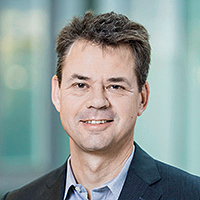 Prof. Dr. Mike Martin (Co-Director, URPP DynAge)
Prof. Dr. Mike Martin (Co-Director, URPP DynAge)
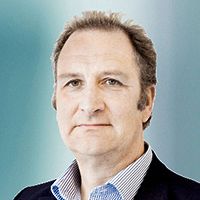 Prof. Dr. Lutz Jäncke (Co-Director, URPP DynAge)
Prof. Dr. Lutz Jäncke (Co-Director, URPP DynAge)
Reports
Community-Based Cognitive-Affective Capacity Building 65+ (CoCoCap65+)
In the current pandemic, individuals 65 years old and older (65+) have been considered a high-risk group, which, coupled with the lockdown and self-isolation, has led to limited access to a variety of resources that are well-known to be critical for societal participation and healthy aging. For instance, maintaining existing and establishing new mentally stimulating activities has been impaired, and opportunities for social contact and exchange have been significantly reduced. This has had the effect of elevating stress levels in these individuals above and beyond what the fear of contagion and disease has already induced.
To help remedy this situation and better understand what the 65+ are experiencing during these challenging times, the URPP DynAge and Senior University of Zurich (UZH3) have launched a new study – Community-Based Cognitive-Affective Capacity Building 65+ (CoCoCap65+) – in collaboration with the Psychology Department of the University of Geneva. The goal is to investigate three different ways of fostering resources for healthy aging in the cognitive, affective, and social domains. Relying on a community-based approach, “trainer” participants will be paired with “trainee” participants whom they will call once a day over a period of three weeks to administer either a short social intervention (conversational impulse), a social-cognitive intervention (word fluency training), or a social-cognitive-affective intervention (expressive writing). All participants will be administered a daily online questionnaire to assess well-being, as well as training dose and quality. They will also be administered a more extensive battery of tests (including cognitive tests) before, right after, and three months after the end of the training period.
The overall aim of this study is to understand the effects of combining social interaction with cognitive and/or cognitive-affective activity on the development of cognitive performance, quality of life, and well-being, as well as transfer effects across the social, cognitive and affective domains. More information about the study can be obtained by following this link (in German).
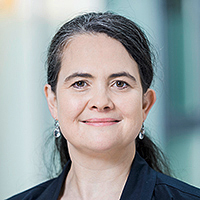 Dr. Andrea B. Horn (Head of Research Group, URPP DynAge)
Dr. Andrea B. Horn (Head of Research Group, URPP DynAge)
 Prof. Dr. Mike Martin (Co-Director, URPP DynAge)
Prof. Dr. Mike Martin (Co-Director, URPP DynAge)
The Pandemic Project: The Study of People During COVID-19
The Pandemic Project is a social psychology initiative that was recently launched by Prof. Dr. James Pennebaker (University of Texas, Austin, USA) and a team of international scientists to study how our everyday lives are affected by the coronavirus outbreak. For many of us, our worlds, our work, and our social relationships are changing. The aim of the project is to better understand how the pandemic is affecting our daily lives, mental health, and connections with others.
Dr. Andrea B. Horn and Tabea Meier, M.Sc. (both URPP DynAge) together with Prof. Dr. Anne Milek (University of Münster, Germany) and Dr. Fenne grosse Deters (University of Potsdam, Germany) are responsible for the German-language version of this project. The COVID questionnaire takes 10-15 minutes to complete and involves a series of questions that ask about the ways people are thinking about and responding to the current coronavirus outbreak. Individuals who complete the survey can learn how their reactions to the outbreak compare with others. What is more, they will receive specific feedback about their coping strategies along with information that might help them deal with the current uncertainties.
Some of the most common reactions to the current outbreak are feelings of uncertainty and fear about social isolation, job loss, health, and other aspects of life. Solid research evidence suggests that writing about emotional upheavals can reduce feelings of distress, improve sleep, and even boost mental and physical health. With this in mind, the project also offers a series of expressive-writing exercises that may help people think about, understand, and cope with some of the issues they may be living with. For each of the 5-10 minute writing exercises, computer-based feedback is provided that can be downloaded or emailed. Additional information about these exercises and the project as a whole can be found by following this link.
 Dr. Andrea B. Horn (Head of Research Group, URPP DynAge)
Dr. Andrea B. Horn (Head of Research Group, URPP DynAge)
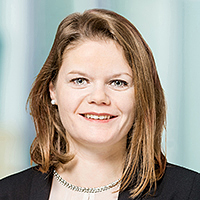 Tabea Meier, M.Sc. (Doctoral Student, Fellow of the “International Max Planck Research School on the Life Course” [LIFE] funded by the Jacobs Foundation)
Tabea Meier, M.Sc. (Doctoral Student, Fellow of the “International Max Planck Research School on the Life Course” [LIFE] funded by the Jacobs Foundation)
OldSchool: The Versus Virus Hackathon
One of the first units at the University of Zurich to cease its on-site activities during the COVID-19 pandemic was the Senior University of Zurich (UZH3). At the same time, a tremendous effort was set into motion at the University to move educational offers online. Seniors, however, were not able to profit from this, as there is no online learning platform for them, Dr. Burcu Demiray (URPP DynAge) realized. Such a platform would not only be useful during a pandemic, but also in the aftermath of the crisis. When the “Versus Virus” Hackathon was announced, Dr. Burcu Demiray submitted her idea, which she called “Homeschooling for the opposite end of life”. The Hackathon took place from April 3 to 5, 2020, where “OldSchool” was born with a new and dedicated team, including Dr. Susanne Tönsmann (Participatory Science Academy, University of Zurich).
OldSchool is a distance learning platform aimed at all senior citizens, regardless of their digital skills. The platform will include academic courses, citizen science projects and hobby classes. With the help of an ambassador program, technically experienced seniors will support interested seniors with lower digital skills. The platform will integrate different learning styles. In addition to private customers, OldSchool wants to attract institutions, such as nursing homes, which could use the platform for their own clientele.
At the end of the Hackathon, the team was thrilled to learn that it was one of the 42 projects (out of 263) to be “highlighted” by the jury. The team received 1’000 CHF and an invitation to participate in an incubation program. The team also applied for and received seed funding from Versus Virus (13’000 CHF), as well as funding from the Senior University UZH3, OldSchool’s first official partner. Since the Hackathon, the team has participated in an EU-wide hackathon, Samsung’s Solve for Tomorrow Competition and the second Versus Virus Hackathon that took place at the end of May. During this second hackathon, OldSchool was highlighted, once again, by a different jury as an innovative and timely solution. OldSchool was also accepted into the coaching program of Samsung. The team is expecting to have developed a first prototype of the platform by this fall. More information about OldSchool can be obtained by following this link.
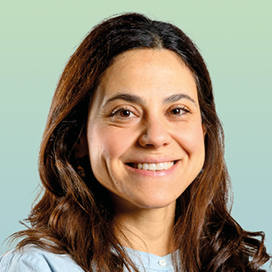 Dr. Burcu Demiray (Head of Research Group, URPP DynAge)
Dr. Burcu Demiray (Head of Research Group, URPP DynAge)
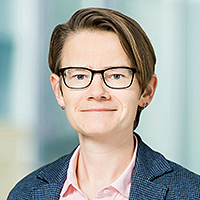 Dr. Susanne Tönsmann (Managing Director, Participatory Science Academy)
Dr. Susanne Tönsmann (Managing Director, Participatory Science Academy)
WHO Collaborating Center Plus Network for Healthy Aging
The idea behind World Health Organization Collaborating Centers (WHO-CC) is to use existing national organizations for international purposes (rather than creating new WHO institutions). WHO-CCs can be research institutes, parts of universities or academies, and are designated by the Director General of the WHO. More than 800 such WHO-CCs exist across 80 Member States, collaborating with the WHO in a diverse set of areas, including nursing, chronic diseases, nutrition, and various aging-related themes. In order to strengthen capacities, WHO-CCs are further encouraged to reach out to other centers in order to set up working relations and to build or join collaborative networks across centers. One such recent network is the WHO Collaborating Center Plus Network for Healthy Aging, which was established at its inaugural meeting in June 2018 in Geneva. This network currently includes 22 WHO-CCs and other institutions from 14 countries that focus specifically or indirectly on aging and health (more information can found by following this link).
The URPP DynAge currently serves as the secretariat of this network (i.e., the coordinating institution) with the generous support of the Velux Stiftung. The network collaborates with the WHO to promote and facilitate the implementation of the key issues outlined in the WHO Global Strategy and Action Plan on Aging and Health, with a particular focus on advancing metrics and monitoring to measure healthy aging (i.e., intrinsic capacity, functional ability, and environments), as well as care dependency. In this vein, one of the main tasks of the network for the upcoming WHO Decade of Healthy Aging (2021-2030) is to coordinate and set up a multi-country study that collects sensor-based high-density real-life activity data from a set of approximately 6 countries covering all WHO regions to obtain contextualized intrinsic capacity and functional ability indicators. Other approaches include the reanalysis of existing data to refine the operationalization and understanding of key healthy aging constructs.
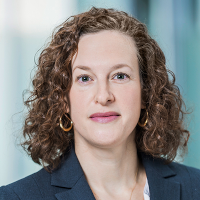 Dr. Christina Röcke (Deputy Director, URPP DynAge)
Dr. Christina Röcke (Deputy Director, URPP DynAge)
Spotlight
Applied Social and Health Psychology
Non-communicable, chronic diseases, such as cardiovascular diseases have become the most frequent cause of death worldwide. In Switzerland, they also represent the main cause for hospital admissions among older individuals. The most important modifiable risk factor for developing these kinds of chronic diseases is leading an unhealthy lifestyle, such as smoking, being physically inactive, or eating an unbalanced diet. Positively speaking, leading a healthy lifestyle does not only help prevent the development of chronic diseases, but also promotes functional ability and well-being in older individuals with or without chronic diseases. The Applied Social and Health Psychology Unit’s main research focus is the investigation of theory-based determinants that promote or hinder healthy aging through health behavior change. Our research contributes to the URPP Dynamics of Healthy Aging in several ways.
First, we conduct intensive-longitudinal observational studies that focus on people’s everyday lives in order to identify key protective and risk factors for specific health behaviors, such as physical activity or smoking in various populations. With such studies we are able to better understand what factors are associated to a healthy lifestyle within individuals over time in everyday life. As an example, we are currently investigating the physical activity and medication intake of heart disease patients during and after in-patient cardiac rehabilitation in collaboration with several in-patient cardiac rehabilitation clinics in Switzerland. These health behaviors, in turn, help patients maintain and potentially improve their physical and mental well-being and functionality, and prevent future cardiac events and disability.
Second, our research takes the importance of social relationships for health into account. We run several research projects focusing on dyads (e.g., couples), in order to examine not only the role of individual self-regulation for health behaviors, but also the interplay of two partners and the social support, social control and companionship they exchange. For instance, in an interdisciplinary project involving computer scientists and collaborators from the medical field we are currently investigating the role that social support and common dyadic coping in a partnership play for the diabetes management of diabetes type 2 patients and their partners. The management of diabetes involves different health behaviors and is crucial to promote health, and well-being and prevent complications.
Third, we develop and test theory-based interventions to change unhealthy behaviors in different groups across the lifespan. For example, we are currently conducting a dyadic intervention in teenagers and their best friends to increase their levels of physical activity. With such an intervention we aim at promoting healthy habits relatively early in the lifespan that, if maintained, will promote people’s health into old age. Another example is a study on dyads using a mobile application to support smoking cessation in the smoking partner of the dyad.
Overall, our Unit’s research has a strong interdisciplinary perspective. We commonly focus on people’s everyday lives, work strictly theory-based, and draw on new technologies for assessing and intervening on people’s health behaviors. Future projects will further strengthen the research foci outlined above and thus continue our contribution to healthy aging research.
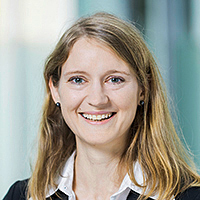 Prof. Dr. Urte Scholz (Participating Professor, URPP DynAge)
Prof. Dr. Urte Scholz (Participating Professor, URPP DynAge)
Brain-Based Predictions in Old Age: An Interview with Dr. Franziskus Liem
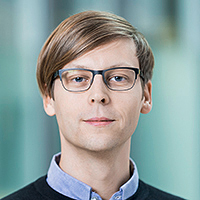 Dr. Franziskus Liem (Postdoc, URPP DynAge)
Dr. Franziskus Liem (Postdoc, URPP DynAge)
Interview by Dr. Marc Grosjean (Scientific Project Developer and Manager, URPP DynAge)
What led you to the field of cognitive neuroscience and how did you become interested in the study of how brains age?
I have a background in psychology and was always very interested in the relationship between psychology and biology. Cognitive neuroscience lies at the intersection of psychology, biology, and technology. Our way to record and analyze data requires a wide array of expertise from these different fields, as well as philosophy, physics, computer science, and statistics. I always found this interdisciplinary approach to be very exciting. Observing brain aging is fascinating because it is so universal and will concern all of us at a certain point in our lives. In contrast to many other phenomena, the structural changes in the brain due to aging, such as the thinning of the cortex, are actually visible to the human eye, which makes them even more palpable.
As a member of the URPP DynAge one of your main interests lies in elucidating how brain structure and functional brain networks change over the (later) lifespan and how this is relevant for cognitive performance. What is the overall goal of this research and what are some of the main discoveries you have made to date?
Neuroscience often investigates brain differences between groups. This can yield interesting results, however group differences are not automatically relevant for the individual. A complementary approach, which often relies on machine learning models, focuses more on individual-level predictions. This predictive approach can, for example, be used to predict a person's brain-age. If a brain of an 80-year-old looks 20 years younger, this suggests brain fitness. Conversely, if a 60-year-old has the brain of a typical 80-year-old this points to accelerated brain aging, which is related to cognitive impairment. While brain imaging studies often use either structural or functional brain imaging, our work showed that by combining these two methods, more accurate predictions can be provided. In the future, this approach might help to identify persons with an increased risk for future cognitive decline and provide the basis for individually tailored interventions.
In addition to working as a neuroscientist, you are very active in the domain of open and collaborative science. Could you provide us with some examples of what you are currently focusing on in this area?
The lack of reproducibility is a problem in most fields of science. Very similar studies often come to very different conclusions. Laboratories usually collect data and employ analysis methods that are not shared with other scientists, which contributes to this problem. Open science has the goal of transparency in research, which should result in more reproducible studies. It favors collaboration over competition, providing data and analyses that can be shared with the entire scientific community. For instance, rather than having every laboratory develop its own analysis software, I am collaborating with scientists from all over the world on projects that can be used by everyone, which will hopefully result in more reproducible research in the long term.
Language Use and Socio-Affective Processes Across the Lifespan: An Interview with Tabea Meier, M.Sc
 Tabea Meier, M.Sc. (Doctoral Student, Fellow of the “International Max Planck Research School on the Life Course” [LIFE] funded by the Jacobs Foundation)
Tabea Meier, M.Sc. (Doctoral Student, Fellow of the “International Max Planck Research School on the Life Course” [LIFE] funded by the Jacobs Foundation)
Interview by Dr. Marc Grosjean (Scientific Project Developer and Manager, URPP DynAge)
What attracted you to the field of psychology and the domain of healthy aging research?
I long considered studying medicine, but then realized that it is people’s thoughts, feelings, and behaviors that really interest me. Further driven by the impression that mental health is not understood and prioritized enough in society, I decided to study Psychology. Combining it with Biology as a minor was a very stimulating experience that allowed me to switch back and forth between lectures about the social behavior of merecats and human social cognition. My interest in lifespan development evolved during my studies and an internship at the International Normal Aging and Plasticity Imaging Center (INAPIC, a precursor to the URPP DynAge), when I realized that healthy aging is a lifelong process that concerns everyone. On a personal note, the exposure to “healthy aging role models”, such as my grandparents or my great-grandfather, a centenarian, certainly also contributed to my interest in lifespan development and aging.
As a doctoral student and Fellow of the International Max Planck Research School on the Life Course (LIFE), your dissertation research focuses on studying socio-affective processes across the lifespan through language use. What specific issues are central to your investigations?
Broadly speaking, I study how language use reflects and contributes to socio-affective processes across the lifespan. My dissertation builds upon research showing that how people use language reveals meaningful psychological insights beyond the mere content of what they are saying. Language use may shed light on key processes in the socio-emotional aspects of healthy aging. For example, I examine how social characteristics (e.g., age) manifest in language use and how this in turn shapes stereotypical and affective evaluations of individuals of different ages. Moreover, the establishment of social connection is essential for healthy aging. Dyadic processes (e.g., attunement) that foster social connection are reflected in language use. I study dyadic attunement in language use in an array of communication contexts, including translations, but mostly in younger and older couples’ interactions in the laboratory and in real life.
You are also a member of the URPP DynAge Research Group “CoupleSense: HIER” which focuses, among other things, on the use of expressive writing for emotion regulation. In brief: How do use this method in your research and how can people benefit from it in their everyday lives?
Expressive writing refers to the written disclosure of personal thoughts and feelings. First, the language used in these personal essays can already generate insights. For example, in our Online Narrative Study on Healthy Aging (“NOGA-Studie”, in German), we aim to validate language use patterns as implicit markers of healthy aging. Second, repeatedly writing down one’s deepest thoughts and feelings may have a health promoting effect by activating the necessary resources for adaptive cognitive-affective processing. In the CoCoCap65+ study presented above, for example, we use writing as an intervention for cognitive and affective well-being. Expressive writing is a very simple way to promote well-being that needs nothing more than paper and a pencil (or a computer) and a quiet location. People who would like to try this out can focus on a personal issue they would like to address, and write for 5-10 minutes on three consecutive days. It is important to write uninterruptedly while exploring one’s own thoughts and emotions surrounding the issue, and to try to tie the issue to past, present or future life events.
Personality Processes and Healthy Aging: An Interview with Stefanie Lindner, M.Sc.
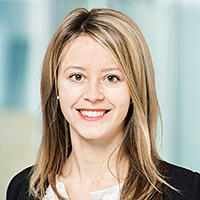 Stefanie Lindner, M.Sc. (Doctoral Student, URPP DynAge)
Stefanie Lindner, M.Sc. (Doctoral Student, URPP DynAge)
Interview by Dr. Marc Grosjean (Scientific Project Developer and Manager, URPP DynAge)
What inspired you to study psychology and to subsequently narrow your focus on personality processes?
I decided to study psychology because I have always been fascinated by the uniqueness of human beings. I remember a slide in a personality psychology lecture which showed a continuum with the two poles "general" and "individual". And the clarification of the latter pole still inspires me - why does every person feel, think and behave individually? The great thing about our current times is that this question can be explored in greater depth thanks to modern measuring techniques and technical advances in the application of analytical methods. The study of intra-individual personality processes can complement traditional research of inter-individual differences and help to achieve a deeper understanding of the uniqueness of human beings.
You are currently a doctoral student at the URPP DynAge and a member of the Differential Healthy Aging Research group. What questions are you trying to address in your dissertation research?
In personality psychology, the prevalent view has long been that personality is a stable and situation-invariant trait. However, even the most extraverted person experiences moments of withdrawal and introversion. This is where the URPP DynAge and Differential Healthy Aging Research group come into play, which offer a great research environment to get to the bottom of this apparent paradox. I am exploring the question of how stability and variability of personality are compatible. This is possible with the help of large datasets with repeated measurements and the application of time series regressions. For example, we have empirically shown that, contrary to the stereotype of being rigid, older people show a considerable degree of intra-individual variability in personality in their everyday life. Another question we are pursuing is how intra-individual variability in personality can be explained.
You are also one of the leaders of a peer-mentoring group on Real-Life Health Measurement and Analytics. Could you explain what that entails and how your own research has benefitted from it?
As co-leader of the peer mentoring group, the task is to plan the annual program and to organize and lead the activities, from statistics workshops to expert lectures and writing retreats. I enjoy working closely with the other two leaders Zita Mayer, M.Sc. (Department of Psychology) and Dr. Birthe Macdonald (URPP DynAge). Since the group was founded 5 years ago, the original motivation to acquire more knowledge about Real-Life Health Measurements has changed. Our members now have an increased need to acquire in-depth analytical knowledge of real life data, which is why the name was changed this year to Real Life Measurements and Analytics (RLMA). My own research has benefitted from this mentoring group in so far as, due to the active design of the program, I am able to specifically promote those areas that are also relevant to my own research.
News
Successfully Defended Dissertations
We congratulate Dr. Serena Fiacco and Dr. Michelle Fillekes on their accomplishment and wish them all the best for their future endeavors!
Dr. Serena Fiacco
Serena Fiacco defended her dissertation titled "Steroid Hormone Secretion and Healthy Aging in Women: Associations with Early Life Adversity, DNA Methylation, and Subjective Health" on January 9th 2020 (main supervisor: Prof. Dr. Ulrike Ehlert). She is currently working as a postdoc at Prof. Susan Girdler`s Lab at the University of North Carolina at Chapel Hill where she studies perimenopausal anxiety and depression.
Dr. Michelle Fillekes
Michelle Fillekes defended her dissertation with the title "GPS-Based Assessment of Daily Mobility for Healthy Aging – Association with Self-Reporting, Underlying Dimensions, and Interplay with Personality" on the 8th of November 2019 (main supervisor: Prof. Dr. Robert Weibel, Department of Geography; interdisciplinary committee members from the URPP representing the fields of Psychology and Gerontology: Dr. Christina Röcke and Prof. Dr. Mike Martin). She is now working as a spatial data scientist in the Swiss carsharing cooperative Mobility.
New URPP DynAge Staff
We extend a warm welcome to our new colleagues Tobias Ackermann, M.A., Melanie Becker, M.Sc., Noemi Dannecker, M.Sc., Olenka Dworakowski, M.Sc., Zilla Huber, M.Sc., and Dr. Tzvetan Popov!
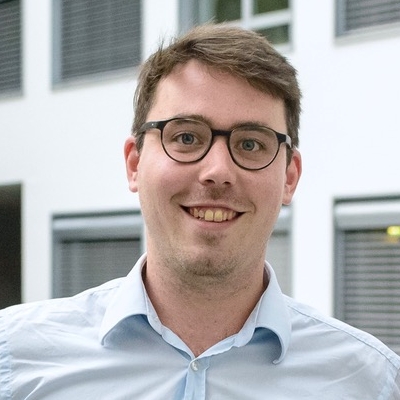
Tobias Ackermann, M.A.
- Support - Mobile Devices Center (previously Center for Gerontology, University of Zurich)
- Tobias Ackermann is responsible for consulting on ambulatory assessment techniques and the use of mobile devices. He also coordinates the lending of such devices from the Mobile Devices Center’s device pool.
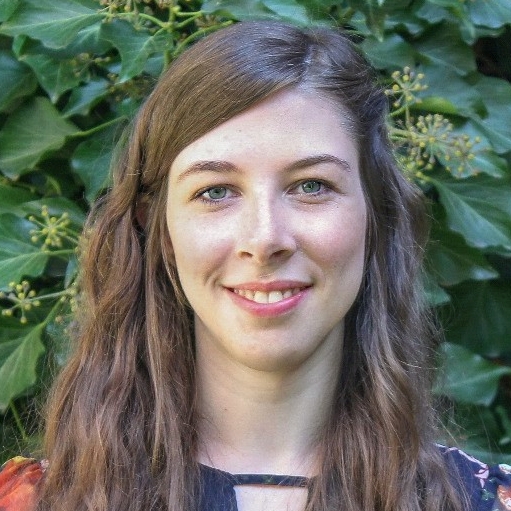
Melanie Becker, M.Sc.
- Doctoral Student - Swiss Centenarian Study (SWISS100; previously Friedrich Schiller University Jena, Germany)
- Melanie Becker is interested in resources and stressors that contribute to vulnerability and resilience in centenarians and the usage of ambulatory assessment methods in the oldest-old.
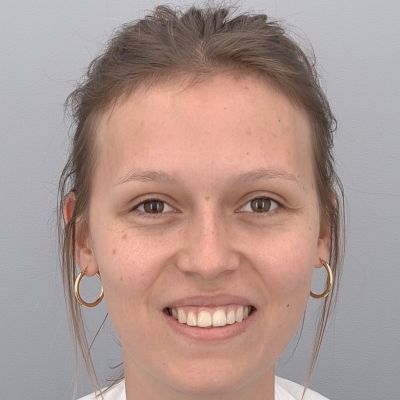
Noemi Dannecker, M.Sc.
- Doctoral Student - Methods in Neuroplasticity Research (previously clinical neuropsychologist, University Hospital Zurich; Master's Degree, University of Zurich)
- Noemi Dannecker will investigate the role of semantic coherence in mental health and illness in the psychosis spectrum using natural language processing and neuroimaging.
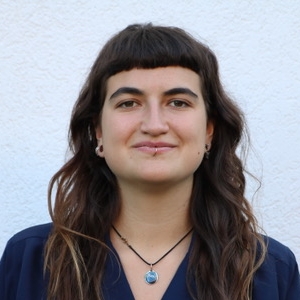
Olenka Dworakowski, M.Sc.
- Doctoral Student - Research area “Language Analysis” (previously Master’s Degree, University of Zurich)
- Olenka Dworakowski will investigate emotions portrayed in different language samples in regard to the current pandemic situation.
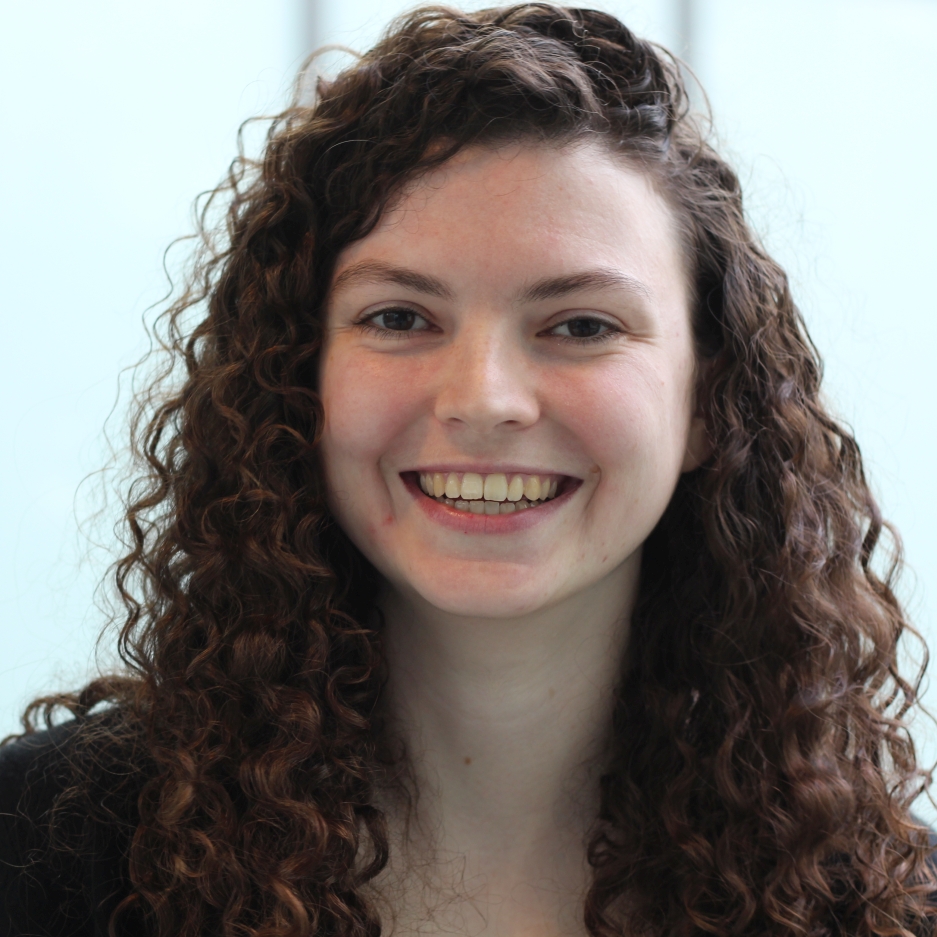
Zilla Huber, M.Sc.
- Doctoral Student - Research area "Health and Interpersonal Emotion Regulation" (previously Master’s Degree, University of Zurich)
- Zilla Huber investigates the effects of capacity building activities on cognitive, social and affective resources linked to healthy aging.
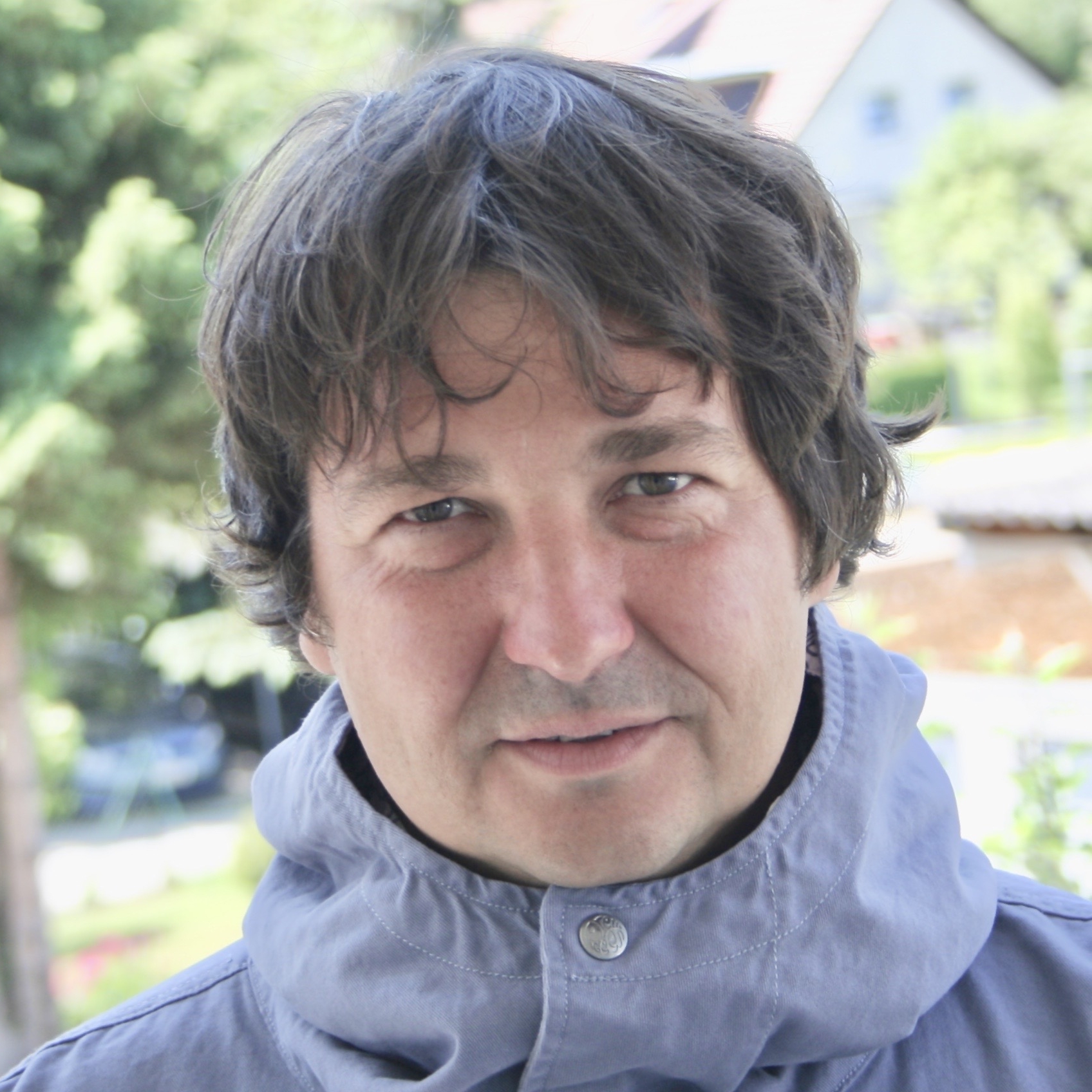
Dr. Tzvetan Popov
- Postdoc - Methods in Neuroplasticity Research (previously Central Institute of Mental Health, Mannheim, Germany)
- Tzvetan Popov studies neuronal rhythms and how they reflect the manifestation of learning and experience-based plasticity and reorganization.
Prizes and Awards
We congratulate Tabea Meier, M.Sc. and Dr. Jessica Oschwald on being recognized for thier innovative research!
Tabea Meier, M.Sc.
URPP DynAge doctoral student Tabea Meier, M.Sc. (URPP DynAge) was awarded this year's Open Science Prize of the UZH Psychology Department in the Paper category for doctoral students for her publication entitled "(Not) Lost in Translation: Psychological Adaptation Occurs During Speech Translation".
Dr. Jessica Oschwald
Former URPP DynAge doctoral student and post-doc Jessica Oschwald has been awarded the annual prize of the UZH Philosophical Faculty for her dissertation on "The Longitudinal Covariation of Brain Structure Changes and Cognitive Ability Changes in Healthy Aging". This prestigious award is only given to one person from each faculty of the University per year and was officially announced at this year's Dies Academicus.
Events
Upcoming Events
TBD, 2020
Workshop on “Women in Big Data Retreat: Coding. Career. Community.” in Waltensburg/Vuorz
Organized by Dr. Jessica Oschwald (Roche Products Limited, UK, and formerly URPP DynAge), Tabea Meier, M.Sc. and Stefanie Lindner, M.Sc. (both URPP DynAge)
Nov. 9th – 11th, 2020
3rd International Interdisciplinary Workshop on Semantic Analysis of Multi-Scale Health Dynamics in Zurich
Organized by Prof. Dr. Mike Martin (URPP DynAge) and PD Dr. Harald Atmanspacher (Collegium Helveticum), with the support of Dr. Burcu Demiray (URPP DynAge)
Nov. 18th – 19th, 2020
MoHeaP 2020: Workshop on “Mobility, Health, and Place” in Zurich
Organized by Dr. Eun-Kyeong Kim and Prof. Dr. Robert Weibel (URPP DynAge and Department of Geography at the University of Zurich) as well as Dr. Christina Röcke (URPP DynAge)
Jun. 29th – Jul. 2nd, 2021
8th Conference of the Society for Ambulatory Assessment (SAA) in Zurich
Organized by the URPP DynAge
Sept. 8th – 10th, 2021
17th Conference of the Swiss Psychological Society (SPS SGP SSP) in Zurich
Organized by the URPP DynAge and the Department of Psychology at the University of Zurich
Photos from a selection (*) of recent events that were (co-)organized by the URPP DynAge can be found online here.
November, 2019
Workshop on “Well-Being and Aging: Today and Tomorrow” in Bern*
Organized by Dr. Marc Grosjean (URPP DynAge) as current coordinator of the Swiss Network for Well-Being and Aging
January, 2020
2nd Workshop on “Dyadic Dynamics” in Zurich*
Organized by Dr. Andrea B. Horn and Prof. Dr. Mike Martin (both URPP DynAge)
January, 2020
Workshop on “Women in Big Data Retreat: AI and Cities” in Lausanne
Organized by Dr. Eun-Kyeong Kim (URPP DynAge and Department of Geography at the University of Zurich)
April, 2020
AAG 2020 Sessions on "Advances in Computational Approaches for Geospatial Health Applications" in Virtual Form
Co-organized by Dr. Eun-Kyeong Kim (URPP DynAge and Department of Geography) for the Annual Meeting of the American Association of Geographers (AAG)
May, 2020
MADOKO – “Masterstudierenden- und Doktorierenden-Kongress” in Virtual Form
Organized by Dr. Claudia Hagmayer (URPP DynAge) for the Department of Psychology at the University of Zurich
Prof. Dr. Stacey Scott, Department of Psychology, Stony Brook University (USA) visited the URPP DynAge from March 3rd – March 17th, 2020.
Soetkin Verstegen, animation filmmaker based in Brussels became an Artist-In-Lab Resident at the URPP DynAge and Department of Psychology from January to April, 2020.
Selected Recent Publications
The full list of URPP DynAge publications can be found online here.
Bartsch, L. M., Loaiza, V. M., Jäncke, L., Oberauer, K., & Lewis-Peacock, J. A. (2019). Dissociating refreshing and elaboration and their impacts on memory. NeuroImage, 199, 585-597.
Fiacco, S., Mernone, L., & Ehlert, U. (2020). Psychobiological indicators of the subjectively experienced health status - findings from the Women 40+ Healthy Aging Study. BMC Women's Health, 20(1):16.
Hill, P. L. & Allemand, M. (Eds.). (2020). Personality and healthy aging: New directions and techniques. Cham: Springer Nature.
Höltge, J., Mc Gee, S. L., Maercker, A., & Thoma, M. V. (2019). Steeling in later life: Exploring age-specific effects of varying levels of stress on psychological resilience. International Journal of Aging and Human Development. Advance online publication. doi:10.1177/0091415019871202
Jäncke, L., Sele, S., Liem, F., Oschwald, J., & Mérillat, S. (2020). Brain aging and psychometric intelligence: A longitudinal study. Brain Structure and Function, 225(2), 519-536.
Kaftan, O. J. & Freund, A. M. (2020). How to work out and avoid procrastination: The role of goal focus. Journal of Applied Social Psychology, 50(3), 145-159.
Kamali, M. E., Angelini, L., Caon, M., Carrino, F., Röcke, C. et al. (in press). Virtual coaches for older adults’ wellbeing: A systematic review. IEEE Access, 8, 101884-101902.
Luo, M., Neysari, M., Schneider, G., Martin, M., & Demiray, B. (2020). Linear and non-linear age trajectories of language use: A laboratory observation study of couples' conflict conversations. Journals of Gerontology, Series B: Psychological Sciences and Social Sciences. Advance online publication. doi:10.1093/geronb/gbaa041
Malagurski, B., Liem, F., Oschwald, J., Mérillat, S., & Jäncke, L. (2020). Functional dedifferentiation of associative resting state networks in older adults - A longitudinal study. NeuroImage:116680.
Meier, T., Boyd, R. L., Mehl, M. R., Milek, A., Pennebaker, J. W., Martin, M., Wolf, M., & Horn, A. B. (2020). (Not) lost in translation: Psychological adaptation occurs during speech translation. Social Psychological and Personality Science. Advance online publication. doi:10.1177/1948550619899258
Schlomann, A., Seifert, A., Zank, S., Woopen, C., & Rietz, C. (2020). Use of Information and Communication Technology (ICT) devices among the oldest-old: Loneliness, anomie, and autonomy. Innovation in Aging, 4(2):igz050.